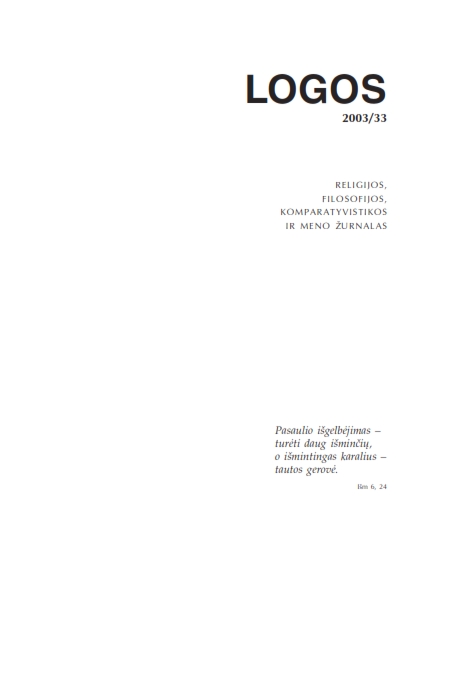Vėlyvoji Wittgensteino filosofija: teorija ar teorijos įveika?
Later Wittgenstein: Philosophical Theory or its Transgression?
Author(s): Paulius PukelisSubject(s): Contemporary Philosophy, Philosophy of Language, Hermeneutics
Published by: Visuomeninė organizacija »LOGOS«
Keywords: Wittgenstein; philosophical discourse; theory of language;
Summary/Abstract: Philosophical Investigations, as well as others of later Wittgenstein’s posthumously published writings, are often interpreted as having a fundamentally different intent than his early philosophy. It is claimed that not only did the later Wittgenstein reject his particular philosophical views he espoused in Tractatus, but even the very possibility of philosophy itself. According to this view, the main (if not only) end of his later writings is to demonstrate the futility of any attempts to solve traditional philosophical problems, as well as the problems themselves. Taking at face value (and out of context) Wittgenstein’s claim that it is “impossible to advance theses in philosophy”, some interpreters even argued that in his later writings he is not doing philosophy at all, but instead opting for some kind of satire. And among so-called continental philosophers, later Wittgenstein is often welcomed as an ally in their heroic attempt to transgress the supposed limitations of traditional philosophical discourse or/and to resist the supposed hegemony of natural science. In this article, I argue that such a view is mistaken. Firstly, if in his later writings Wittgenstein aims only at satire, then it is not clear why he introduces several philosophical neologisms, among others, language-game and rule-following. Secondly, if one claims that there is an unbridgeable gap between his early and later philosophy, then it is very difficult to pinpoint this change of mind in his manuscripts, which Wittgenstein used to write almost incessantly throughout his life. Moreover, those manuscripts show that rather the opposite is the case. Drawing on the results of Merrill B. and Jaakko Hintikka’s interpretation of the development of Wittgenstein’s thought, I argue that we have strong grounds to claim that later Wittgenstein is up to providing a new and serious theory of language which is as much rigorous as the one expressed in his early work.
Journal: LOGOS - A Journal of Religion, Philosophy, Comparative Cultural Studies and Art
- Issue Year: 2003
- Issue No: 33
- Page Range: 56-65
- Page Count: 10
- Language: Lithuanian

